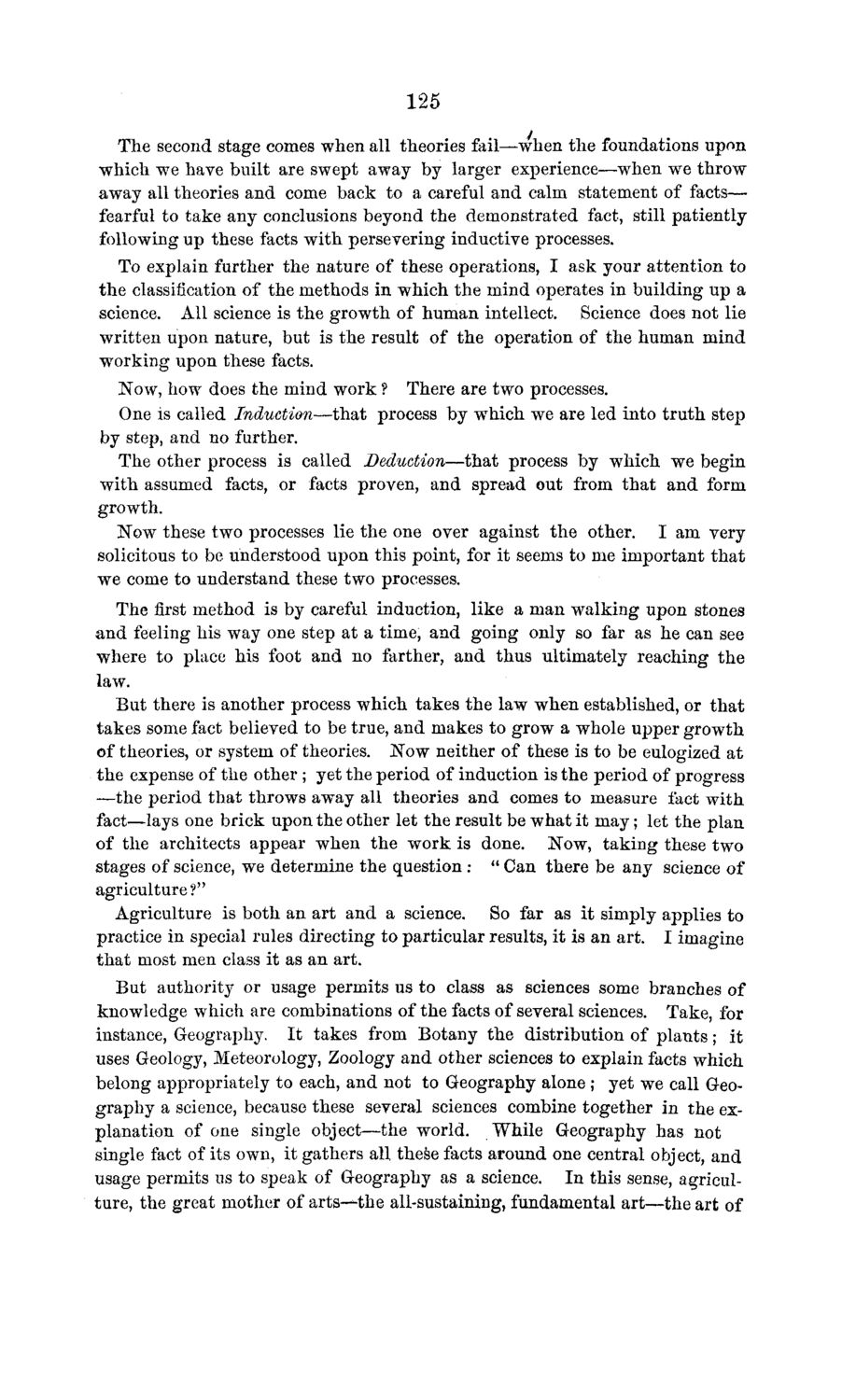| |
| |
Caption: Board of Trustees Minutes - 1869
This is a reduced-resolution page image for fast online browsing.

EXTRACTED TEXT FROM PAGE:
125 The second stage comes when all theories fail—when the foundations upon which we have built are swept away by larger experience—when we throw away all theories and come back to a careful and calm statement of facts— fearful to take any conclusions beyond the demonstrated fact, still patiently following up these facts with persevering inductive processes. To explain further the nature of these operations, I ask your attention to the classification of the methods in which the mind operates in building up a science. All science is the growth of human intellect. Science does not lie written upon nature, but is the result of the operation of the human mind working upon these facts. Now, how does the mind work ? There are two processes. One is called Induction—that process by wThich we are led into truth step by step, and no further. The other process is called Deduction—that process by which we begin with assumed facts, or facts proven, and spread out from that and form growth. Now these two processes lie the one over against the other. I am very solicitous to be understood upon this point, for it seems to me important that we come to understand these two processes. The first method is by careful induction, like a man walking upon stones and feeling his way one step at a time, and going only so far as he can see where to place his foot and no farther, and thus ultimately reaching the law. But there is another process which takes the law when established, or that takes some fact believed to be true, and makes to grow a whole upper growth of theories, or system of theories. Now neither of these is to be eulogized at the expense of the other ; yet the period of induction is the period of progress —the period that throws away all theories and comes to measure fact with fact—lays one brick upon the other let the result be what it may; let the plan of the architects appear when the work is done. Now, taking these two stages of science, we determine the question : " Can there be any science of agriculture?" Agriculture is both an art and a science. So far as it simply applies to practice in special rules directing to particular results, it is an art. I imagine that most men class it as an art. But authority or usage permits us to class as sciences some branches of knowledge which are combinations of the facts of several sciences. Take, for instance, Geography. It takes from Botany the distribution of plants; it uses Geology, Meteorology, Zoology and other sciences to explain facts which belong appropriately to each, and not to Geography alone ; yet we call Geography a science, because these several sciences combine together in the explanation of one single object—the world. While Geography has not single fact of its own, it gathers all these facts around one central object, and usage permits us to speak of Geography as a science. In this sense, agriculture, the great mother of arts—the all-sustaining, fundamental art—the art of
| |